-
 bitcoin
bitcoin $87959.907984 USD
1.34% -
 ethereum
ethereum $2920.497338 USD
3.04% -
 tether
tether $0.999775 USD
0.00% -
 xrp
xrp $2.237324 USD
8.12% -
 bnb
bnb $860.243768 USD
0.90% -
 solana
solana $138.089498 USD
5.43% -
 usd-coin
usd-coin $0.999807 USD
0.01% -
 tron
tron $0.272801 USD
-1.53% -
 dogecoin
dogecoin $0.150904 USD
2.96% -
 cardano
cardano $0.421635 USD
1.97% -
 hyperliquid
hyperliquid $32.152445 USD
2.23% -
 bitcoin-cash
bitcoin-cash $533.301069 USD
-1.94% -
 chainlink
chainlink $12.953417 USD
2.68% -
 unus-sed-leo
unus-sed-leo $9.535951 USD
0.73% -
 zcash
zcash $521.483386 USD
-2.87%
How long will it take for DMA to rebound after the bottom divergence between DMA and price?
DMA bottom divergence signals weakening bearish momentum, but a confirmed rebound typically takes hours to days, depending on volume, sentiment, and market structure.
Jul 31, 2025 at 06:29 am
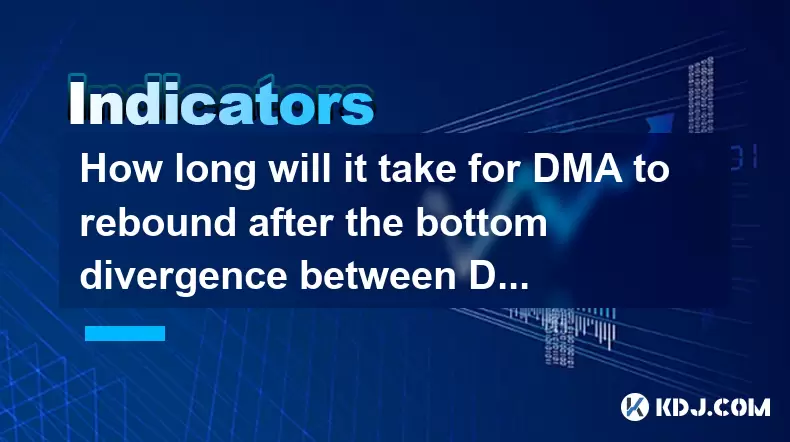
Understanding DMA and Price Divergence
The DMA (Dynamic Moving Average) is a technical indicator used in cryptocurrency trading to identify trends and potential reversals by smoothing price data over time. Unlike traditional moving averages, the DMA adapts to market volatility, making it more responsive during sharp price swings common in crypto markets. When analyzing bottom divergence, traders look for a scenario where the price makes a lower low, but the DMA forms a higher low. This signals weakening downward momentum and hints at a potential upward reversal.
This divergence suggests that although sellers are pushing the price lower, buying pressure is subtly increasing, as reflected in the DMA's stabilization. The key insight here is that divergence does not guarantee an immediate rebound; it only indicates a shift in momentum. Traders must consider additional confirmation signals such as volume spikes, candlestick patterns, or overbought/oversold conditions on oscillators like the RSI.
Factors Influencing Rebound Timing After Divergence
The duration between a confirmed bottom divergence and a price rebound varies significantly across different cryptocurrencies and market conditions. Several factors impact how quickly the price responds:
- Market sentiment: In a strong bearish environment driven by macroeconomic factors or negative news, even a valid divergence might take longer to trigger a rebound. Conversely, positive sentiment can accelerate the reversal.
- Trading volume: A divergence accompanied by rising volume on upward candles strengthens the likelihood of a faster rebound. Low volume may indicate lack of conviction, delaying the move.
- Timeframe analyzed: On lower timeframes like 15-minute or 1-hour charts, rebounds may occur within hours. On daily or weekly charts, the process can take days or weeks.
- Support and resistance levels: If the price is near a historically strong support level when divergence appears, the rebound tends to happen quicker. Resistance overhead can delay upward movement even after divergence.
It is crucial to monitor these elements in real time using tools like TradingView or MetaTrader with DMA overlays.
How to Identify a Valid Bottom Divergence
Not every divergence leads to a successful rebound. To avoid false signals, traders must confirm the validity of the divergence using a structured approach:
- Align price and DMA lows: Ensure the price creates two distinct lows, with the second lower than the first. Simultaneously, the DMA should show the second low at a higher level than the first.
- Check candlestick confirmation: Wait for a bullish engulfing pattern, hammer, or three white soldiers after the second low to confirm buyer entry.
- Cross-verify with RSI or MACD: Use a momentum oscillator to see if it also shows bullish divergence. When multiple indicators align, the signal gains strength.
- Avoid choppy markets: In sideways or range-bound markets, divergence occurs frequently but lacks follow-through. Focus on trending markets with clear directional moves.
Using BTC/USDT on a 4-hour chart as an example, if Bitcoin drops to $58,000 (lower low) while the DMA forms a higher low than at $60,000, and the RSI rises from 30 to 50, this strengthens the divergence signal.
Step-by-Step Guide to Monitoring Rebound After Divergence
Once a bottom divergence is identified, traders should follow a systematic process to anticipate the rebound:
- Enable DMA on your chart: In TradingView, click “Indicators” and search for “Dynamic Moving Average.” Adjust the period (commonly 14 or 21) based on your strategy.
- Mark the divergence points: Draw horizontal lines at the two price lows and corresponding DMA lows to visually confirm the divergence.
- Set up price alerts: Use exchange or charting platform alerts at the breakout level above the most recent swing high post-divergence.
- Watch for volume surge: Enable volume indicators and look for a noticeable increase in buying volume on green candles after the second low.
- Enter on confirmation: Avoid entering immediately after divergence detection. Wait for a close above the resistance level formed by the recent consolidation.
- Place stop-loss below the second low: Protect capital by setting a stop-loss just beneath the most recent price low to minimize risk if the rebound fails.
This method ensures disciplined trading and reduces emotional decision-making.
Historical Examples of DMA Divergence in Crypto Markets
Analyzing past instances helps understand typical rebound timelines. In Ethereum (ETH/USDT) during June 2023, a bottom divergence formed on the 4-hour chart when price hit $1,760, down from $1,850 earlier. The DMA, however, held above its prior low. Over the next 36 hours, volume increased steadily, and price broke above $1,820 resistance, initiating a 12% rally.
Similarly, Solana (SOL/USDT) showed a daily chart divergence in November 2023. The price reached $89, lower than the prior $92 low, but the DMA made a higher low. It took 5 days for the price to reclaim $100, supported by growing on-chain activity and exchange inflows.
These cases show that rebounds can occur within 1 to 5 days on daily charts, while shorter timeframes may see action within hours.
Frequently Asked Questions
How do I distinguish between a fake and real DMA divergence?A real divergence occurs in a clear downtrend with declining momentum. Fake divergences appear in choppy markets without follow-through volume. Confirm with RSI crossing above 50 and a breakout candle closing above the immediate resistance.
Can DMA divergence occur on multiple timeframes simultaneously?Yes. When weekly, daily, and 4-hour charts all show bullish divergence, the signal is significantly stronger. This multi-timeframe alignment increases the probability of a sustained rebound.
Does DMA divergence work the same on all cryptocurrencies?It works best on high-liquidity coins like BTC, ETH, and BNB. Low-cap altcoins with erratic volume may produce misleading signals due to manipulation or thin order books.
What settings should I use for DMA to maximize accuracy?Start with a period of 14 and adjust based on volatility. For stablecoins or less volatile pairs, use 21. For high-volatility altcoins, reduce to 9 or 10. Backtest on historical data to fine-tune.
Disclaimer:info@kdj.com
The information provided is not trading advice. kdj.com does not assume any responsibility for any investments made based on the information provided in this article. Cryptocurrencies are highly volatile and it is highly recommended that you invest with caution after thorough research!
If you believe that the content used on this website infringes your copyright, please contact us immediately (info@kdj.com) and we will delete it promptly.
- Cost-Averaging into the Meme Supercycle: SPX6900 Lessons Pave Way for Maxi Doge
- 2026-02-05 19:20:02
- US Government's Bitcoin Stance Steadies Crypto's Wild Ride Amid Market Volatility
- 2026-02-05 19:05:01
- Bear Market Scenarios Unpacked: Analyst PlanB's Insights and Market Outlook
- 2026-02-05 19:00:02
- ZKsync Price Manipulation Probe on Upbit Sparks Regulatory Scrutiny in South Korea
- 2026-02-05 19:00:02
- FxWirePro, Trending Coins, and CoinGecko Insights: Navigating the Crypto Landscape
- 2026-02-05 19:15:01
- Vanguard's Quiet Bitcoin Treasury Gambit Signals Mainstream Crypto Shift
- 2026-02-05 19:20:02
Related knowledge
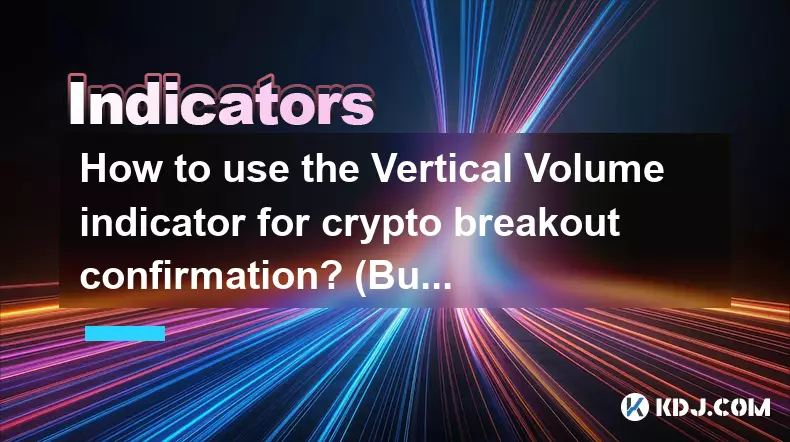
How to use the Vertical Volume indicator for crypto breakout confirmation? (Buying Pressure)
Feb 05,2026 at 04:19am
Understanding Vertical Volume in Crypto Markets1. Vertical Volume displays the total traded volume at specific price levels on a chart, visualized as ...

How to identify "Hidden Bullish Divergence" for crypto trend continuation? (RSI Guide)
Feb 04,2026 at 05:19pm
Understanding Hidden Bullish Divergence1. Hidden bullish divergence occurs when price forms a higher low while the RSI forms a lower low — signaling u...
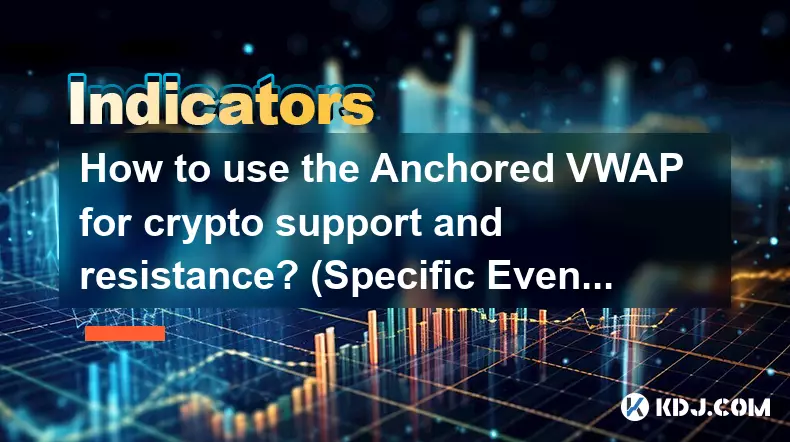
How to use the Anchored VWAP for crypto support and resistance? (Specific Events)
Feb 05,2026 at 01:39am
Anchored VWAP Basics in Crypto Markets1. Anchored Volume Weighted Average Price (VWAP) is a dynamic benchmark that calculates the average price of an ...
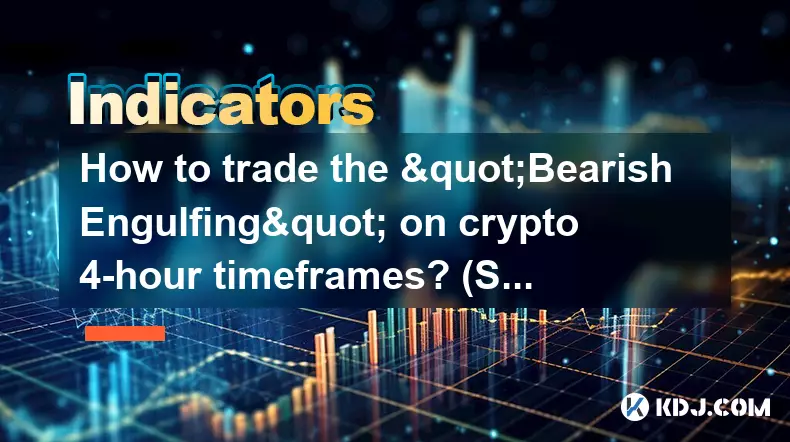
How to trade the "Bearish Engulfing" on crypto 4-hour timeframes? (Short Setup)
Feb 04,2026 at 09:19pm
Bearish Engulfing Pattern Recognition1. A Bearish Engulfing forms when a small bullish candle is immediately followed by a larger bearish candle whose...

How to use the Force Index for crypto trend validation? (Price and Volume)
Feb 04,2026 at 10:40pm
Understanding the Force Index Fundamentals1. The Force Index measures the power behind price movements by combining price change and trading volume in...
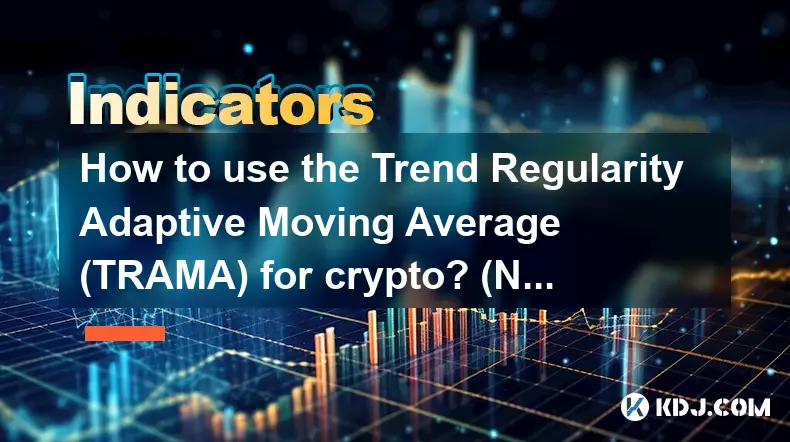
How to use the Trend Regularity Adaptive Moving Average (TRAMA) for crypto? (Noise Filter)
Feb 04,2026 at 07:39pm
Understanding TRAMA Fundamentals1. TRAMA is a dynamic moving average designed to adapt to changing market volatility and trend strength in cryptocurre...

How to use the Vertical Volume indicator for crypto breakout confirmation? (Buying Pressure)
Feb 05,2026 at 04:19am
Understanding Vertical Volume in Crypto Markets1. Vertical Volume displays the total traded volume at specific price levels on a chart, visualized as ...

How to identify "Hidden Bullish Divergence" for crypto trend continuation? (RSI Guide)
Feb 04,2026 at 05:19pm
Understanding Hidden Bullish Divergence1. Hidden bullish divergence occurs when price forms a higher low while the RSI forms a lower low — signaling u...

How to use the Anchored VWAP for crypto support and resistance? (Specific Events)
Feb 05,2026 at 01:39am
Anchored VWAP Basics in Crypto Markets1. Anchored Volume Weighted Average Price (VWAP) is a dynamic benchmark that calculates the average price of an ...

How to trade the "Bearish Engulfing" on crypto 4-hour timeframes? (Short Setup)
Feb 04,2026 at 09:19pm
Bearish Engulfing Pattern Recognition1. A Bearish Engulfing forms when a small bullish candle is immediately followed by a larger bearish candle whose...

How to use the Force Index for crypto trend validation? (Price and Volume)
Feb 04,2026 at 10:40pm
Understanding the Force Index Fundamentals1. The Force Index measures the power behind price movements by combining price change and trading volume in...

How to use the Trend Regularity Adaptive Moving Average (TRAMA) for crypto? (Noise Filter)
Feb 04,2026 at 07:39pm
Understanding TRAMA Fundamentals1. TRAMA is a dynamic moving average designed to adapt to changing market volatility and trend strength in cryptocurre...
See all articles























![KING vs PAINIFY😳 (1v1 ZONEWARS) [FORTNITE TOKEN/WAGER] KING vs PAINIFY😳 (1v1 ZONEWARS) [FORTNITE TOKEN/WAGER]](/uploads/2026/02/05/cryptocurrencies-news/videos/origin_6984035326d58_image_500_375.webp)
![2/4 [U.S. Hot Search] CIA: Xi Jinping is a paranoid | Xi Jinping’s two phone calls | Shandong’s “Internet-addicted” teenagers rebelled against tyranny | A direct attack on the Chengdu hacker national team | Why GDP must grow by 5% | The bridge under construction by the China Railway 12th Bureau collapsed | Thousands of billions of dollars spent abroad and thirty billion domestic subsidies | 2/4 [U.S. Hot Search] CIA: Xi Jinping is a paranoid | Xi Jinping’s two phone calls | Shandong’s “Internet-addicted” teenagers rebelled against tyranny | A direct attack on the Chengdu hacker national team | Why GDP must grow by 5% | The bridge under construction by the China Railway 12th Bureau collapsed | Thousands of billions of dollars spent abroad and thirty billion domestic subsidies |](/uploads/2026/02/05/cryptocurrencies-news/videos/origin_69840a757417b_image_500_375.webp)

















































